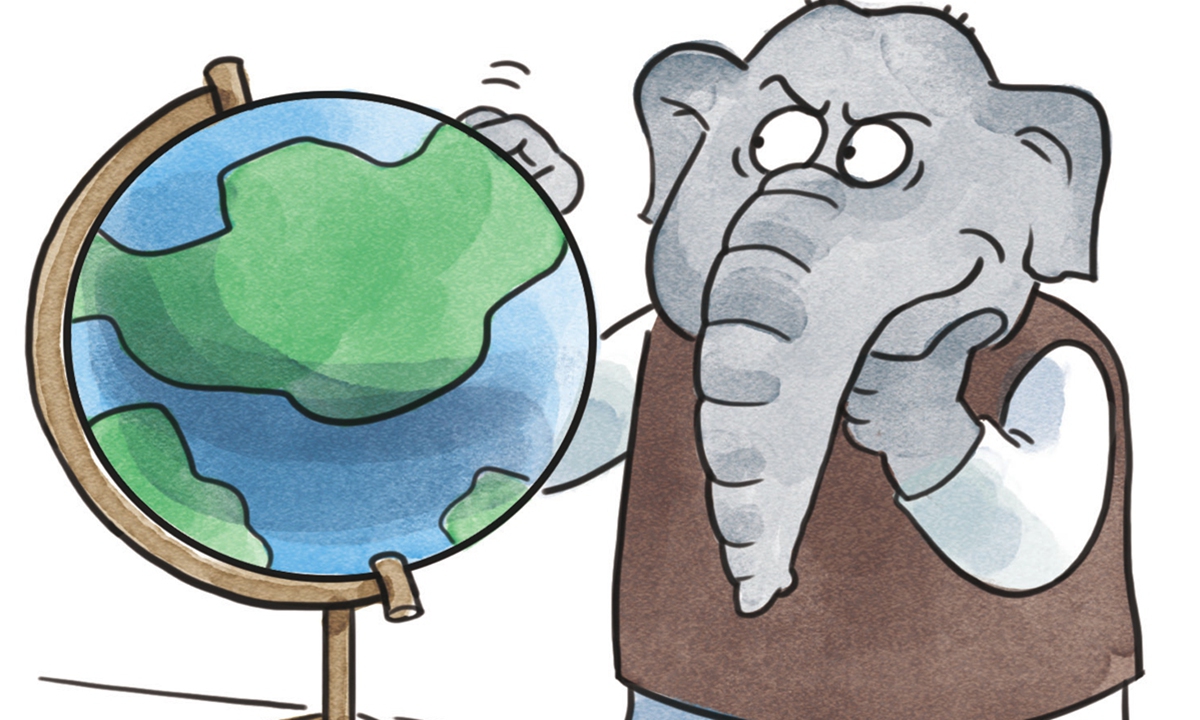
Illustration: Liu Rui/GT
Foreign Ministry spokesperson Hua Chunying announced on Monday that President Xi Jinping will chair a virtual summit commemorating the 30th anniversary of the establishment of diplomatic relations between China and the five Central Asian countries on Tuesday in Beijing.
For the past three decades, the cooperation between China and the five Central Asian countries has been profound and comprehensive. China has established a strategic partnership with all five countries - including a permanent comprehensive strategic partnership with Kazakhstan. China and the five countries have been working closely in the fields of Belt and Road Initiative implementation, major security issues, regional order, and economy. It is natural for the two sides to follow their cooperation trend to commemorate the diplomatic milestone.
Meanwhile, India, who considers Central Asia to be part of its "extended neighbor," will also hold a video summit with the five countries' leaders on Thursday. Indian media previously reported the event as "a foreign policy move that has not yet been taken by China or Russia." This showcased the Modi government's political intention behind the summit. The report also cited sources as saying that "it has become imperative for India to have a 'robust foothold'" in a bid to deal with China's growing "footprints" in the region.
Indeed, India's relationship with Central Asia has a long history. New Delhi is interested in playing a role in Central Asian affairs as well as in the region's oil and gas industry. For example, the Turkmenistan-Afghanistan-Pakistan-India pipeline was first proposed in the 1990s, but its incompletion carries on.
Despite the history of their relations, India doesn't have much influence in Central Asia. The connectivity of the economy between India and Central Asia is also weak. One reason is India doesn't have an outstanding economic advantage to conduct complementary exchanges with the five Central Asian countries. On the other hand, there are obstacles such as infrastructure problems.
Pakistan is another factor. India had wanted to make Central Asia a region where it could build strategic influence in the back of Pakistan. As India and Pakistan have contradictions to be properly addressed, and Islamabad has a relatively bigger voice in Afghan and Central Asian issues, these discords have to some extent tied India's hands in promoting its relations with Central Asian countries.
Although India doesn't give up trying to play a bigger role, it has not yet invested enough to make ripples. But India's attempt coincides with the US' new strategy for Central Asia - which "revolves around a familiar 'holy trinity' - independence, sovereignty, and territorial integrity," according to a Diplomat's analysis. Washington is thus backing New Delhi in this regard.
There are forces decrying the so-called Russia threat as well as the "China threat" in Central Asia, but the "India threat" narrative is yet to appear. It is normal to see certain forces overreact to the influence of Russia and China and promote the threat theory. This, from another perspective, shows that India lacks influence in the region.
India media The Print said, "China, Afghanistan top of mind as PM Modi holds first summit with Central Asian leaders." If the discussions about China are positive surrounding cooperation, the Central Asian countries are likely to engage. But if focused on negative sides, they will probably be reluctant to respond. The reason is simple. Relations with China are an important diplomatic issue for the five countries - and they have fundamentally maintained this.
The Central Asian countries' desire and need for cooperation with China on issues including trade and even security are far greater than those with India. This being the case, even if India is up to something, it is unlikely to succeed. If New Delhi targets Beijing, it has to put in more diplomatic resources - but it is not that capable at present.
Central Asia is not a global, but regional hot spot. The region has abundant oil and gas resources and is in a crucial geographical position. It is normal for India to have its own calculations in Central Asia, but it needs, according national strength or investment, to gain more influence. From the current situation, it is nearly impossible for India to have a bigger role than Russia and China in this region.
Nevertheless, the US' watchful eye and its support for India has injected uncertainty in Central Asia. This deserves attention from all sides.
In other words, cooperation to promote peace, stability and development in Central Asia is welcome, but moves to create confrontation and stir up turmoil will definitely not be accepted by countries in the region.
The author is an associate research fellow at the Institute of Russian, Eastern European and Central Asian Studies under the Chinese Academy of Social Sciences. opinion@globaltimes.com.cn




